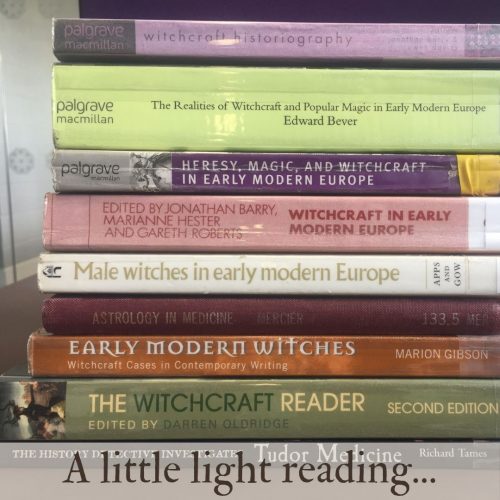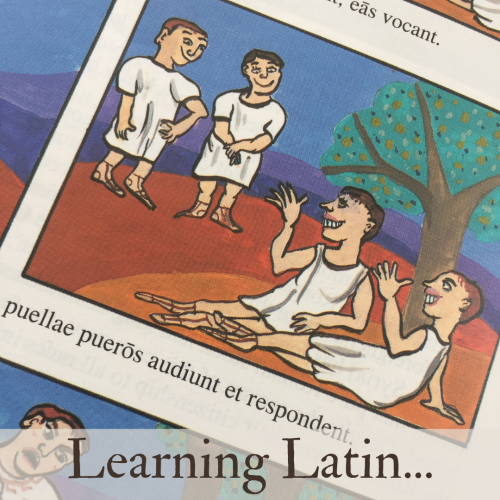
Last week I unexpectedly had a free morning to spend at the Library, so I spent it getting acquainted with the subject of witchcraft in Early Modern Europe. I’m still reading around the edges of early printed herbals and medicine, particularly in the area of lay medicine. I’m interested in how, and by whom, medicine was practiced by communities who didn’t necessarily have easy access to doctors.
I was thinking about rural and community medicine, and in particular the archetype of the “wise woman” who people might go to in times of need, expecting a remedy of some kind. One of the difficulties with looking into rural communities in the early modern period is that literacy was not widespread, so as a result there’s very little first hand information written down. I wondered whether I might find anything lurking in the documentation to do with witchcraft, but as it turned out, the answer was no… or at least not in the way that I’d expected.
According to Barbara Rosen:
… a closer look into ecclesiastical records and into the background of pamphlet and instructional literature suggests that a much larger number of English witches were “good witches” never brought to trial by neighbours, who regarded them as an asset to the community.
Witchcraft in England 1558-1618, (1969) preface to the paperback edition (1991), pp viii & x
Few poor people visited doctors and they were cynical about the clergy, but they did visit witches, wise women, or cunning men in circumstances where healer, client, and suspected bad witch were all part of the same society and equally aware of its hidden dynamics.
This view was also supported by Jane P. Davidson in her essay “The Myth of the Persecuted Female Healer” (1995)
…the historical evidence shows that female healers, with the exception of midwives, were rarely those denounced as witches. While the belief that midwives were witches was widespread, evidence indicates that even the number of practicing midwives that were tried and condemned is not particularly large.
The Witchcraft Reader, Second Edition, ed. Darren Oldridge, 2008. Chapter 26 (p 258)
…only a small number of European witches were specifically described as healers.
Davidson also quotes Doreen G. Nagy’s Popular Medicine in Seventeenth Century England, which I have yet to read:
Since most medical historians of the early modern period have written from the perspective of professional medicine, they have either completely ignored the role of ordinary women in the provision of medical services, or dismissed them with patronizing terms such as wise women, white witches, or simply old women… in fact women played a central role in Stuart health care.
Popular Medicine in Seventeenth Century England, Doreen G. Nagy, 1988
So, it looks as though my next step is to read that book… and also to have a look for some more recent research in this particular area. As soon as I collect my Postgraduate library card (at the end of next month), I can start looking at some of the online journals and ebooks which I don’t have access to at the moment.
I’m also looking at the history of botany, and all manner of folklore to do with plants. In fact my reading list is starting to get a little bit out of hand! I really need to start making a spreadsheet of what I’ve read, and some notes about which particular areas I’d like to focus on next. Otherwise I could easily keep reading aimlessly around the subject forever.

I’m intending to focus primarily on books written in English, but I thought it might be sensible to have a bit of a refresher course in Latin, just in case. I’ve gone right back to the beginning with the Oxford Latin Course, having discovered that I could remember precisely nothing of the Latin that I’d learned in my first year as an undergraduate, way back in the mists of 1993. So far the translations are going pretty well… but oh! The grammar!
I went to high school during a period when we weren’t really taught English grammar, never mind Latin, so there’s a huge chunk of stuff (particularly regarding cases and how to make them agree with one another) that I simply don’t know. I’m getting there – but very slowly!
